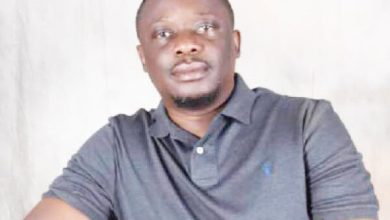FG should help enforce compulsory insurances – Tope Smart

Mr Tope Smart is the Chairman of the Nigerian Insurers Association (NIA) and Group Managing Director, NEM Insurance Plc. In this interaction with select journalists, he spoke on the Nigerian insurance industry and the need for government to help in the enforcement of compulsory insurances.
What are the market trends that will make impact on the insurance industry in the next 5 years?
The first is that operators are embracing and exploring technology to boost customer service delivery which is a positive development. A number of products are sold online as opposed to situation in the past. Customers can now buy insurance policy and pay from the comfort of their homes.
Secondly, most insurance players now live up to expectations such that we experience minimal delay in the payment of claims. Operators have stepped up their games in trying to delight their clients. All of this will impact the industry positively in Nigeria in the next five years.
What are your concerns for the industry?
My major concern for the industry is that we are not occupying the position we are supposed to be as an industry. A lot of other industries don’t have respect for our industry because we are yet to play a role that is critical and fundamental as an industry. One of the reasons why we are not taken seriously is our low contribution to the Gross Domestic (GDP).
It is very insignificant and that is why people tend to look down on the industry as one that is underperforming. This is a very major concern for me which I think we should try to address.
We should be able to put insurance in its prime position. Insurance is the bedrock of the economy. All these industries can’t survive without insurance. So, if insurance is the bedrock of the economy, then why are we not playing our critical role and not being taken so seriously? So, it is a major concern for me and I think all the stakeholders in the industry must work together.
Aside from low contribution to GDP, premium income is also not growing as it should. What are your plans to push the industry to the next level?
So many things can be done to achieve this. The first thing is that we need the support of government because we lack adequate support from government. As we all know, Government is the biggest spender in any economy and we need government not only to insure all the assets of government but also enforce compulsory insurances.
We have so many insurance products that our regulator, the National Insurance Commission (NAICOM) rolled out but how many people actually take all those covers? Very insignificant, let’s take the example of motor insurance.
The statistics available is that about 11.7 million vehicles were on the road last year. Out of the 11.7 million vehicles, statistics also revealed that only about 2.5 million of those vehicles had any form of insurance or the other. So, what happens to the other N9.2 million vehicles that were not insured?
If the Federal Government can help us to enforce the compulsory insurances, such that no car plies on the Nigerian roads without having the minimum insurance cover of third party, it will have huge effect on our industry.
Also, look at all other compulsory insurances like Group Life, Health Care Professional Indemnity, Insurance of Public Buildings, Insurance of Buildings under Construction and Employers Liability Insurance. We need government to assist us to enforce all these insurances. If this is done, the industry’s premium will shoot up significantly. This is one angle to it.
The second angle is that we need to increase our penetration level. For instance, we are far from our target on financial inclusion for the industry. We need to reach the unreached on insurance and educate people to know the benefit of insurance.
As I speak with you now, not many people know the benefits of insurance. About five years ago, an elite called me and said he just bought a vehicle of about N10 million and asked me for the rate of third party motor insurance.
I was surprised that he asked to have a third party cover on a vehicle of N10 million car. I told him I couldn’t do that for him as his friend but he said nothing was going to happen. I insisted by advising him to take a comprehensive cover on the vehicle. By the time we calculated how much premium he needs to pay to secure the vehicle if he does comprehensive, it was about N500,000.
You can imagine that even the elites that are expected to know do not know the benefits of insurance. So we need to educate people about the benefits and by the time we do this, and marry it with all other factors, I believe that the industry can actually hit the N1 trillion targets.
Talking about government’s support, are insurers thinking of an insurance reform just as we had pension reform that transformed pension in the country?
We are working in this area, but it is not something we can do alone. We are talking to our regulator, NAICOM and all the other stakeholders in the industry to see how we can get government to have a total buy-in.
I believe that government too will benefit from an enhanced premium in the industry because we are going to pay taxes, and contribute in one way or the other to the other sectors. So, we are trying to find a way to work with government to have her buy-in to be able to have a holistic view about the way the industry is structured now.
We are also trying to see how the industry works in the developed economy. Pension reform was copied from Asia, Malaysia to be precise and I learnt that they are looking at Singapore to grow on what they have on ground.
We can look at it from another perspective and by so doing we believe that we will be able to make government buy in into the project.
There are also issues of unethical practices that affect revenue and claims payment. How are you instilling discipline among your members to ensure they fulfill their obligation to policy holders?
Well, as an association we have a mechanism we have put in place. We encourage members of the public to report companies that are not fulfilling their obligations to them to the association.
We have an internal mechanism through which companies that fail to honour their obligations are put in check. We try to come in to meditate between some of these companies and the policy holders to ensure they live up to expectation.
Do you expect this to increase the trust amongst the populace because the distrust is really high?
I agree with you. We are equally working with our regulators to see how they can intervene where some of our members do not play by the rules.
Let’s talk about the major project of the NIA, Nigerian Insurance Industry Database (NIID) Unstructured Supplementary Service Data (USSD) Code *565*11#. Give us an insight on how it started and its benefit to people?
We started the NIID project some years back in order to arrest fake motor and marine insurance certificates in the country. We discovered that so many people were carrying fake certificates.
Of course, many people they didn’t know they were fake because some touts just gave them one dead insurance company’s name and issued a certificate. The people, most times, only get to know when there’s an accident or something before they realise such companies do not exist.
How do you check the status of your motor insurance with the USSD?
You can check it on your phone or any phone. It doesn’t have to be smartphone. Just Dial *565#11 and then it will prompt up and you will be able to check the validity to see the genuine and expiry date of your policy.
What are the other major plans of NIA this year?
We have quite a number of things that we want to do. We recently held a retreat where we brainstorm and put some ideas together.
First, we want to introduce the concept of professionalism, and we want it entrenched. We discovered that some players don’t play by the rules and have abandoned professionalism just to get business.
We want to entrench good ethics as part of the things that will move the industry forward. We have talked about low penetration level. We want to look at how we can increase our contribution to GDP. These are the kind of things we are looking at this year. And like I mentioned we have thoroughly debated the issues among ourselves and solutions have been proffered.
Source: www.independent.ng





